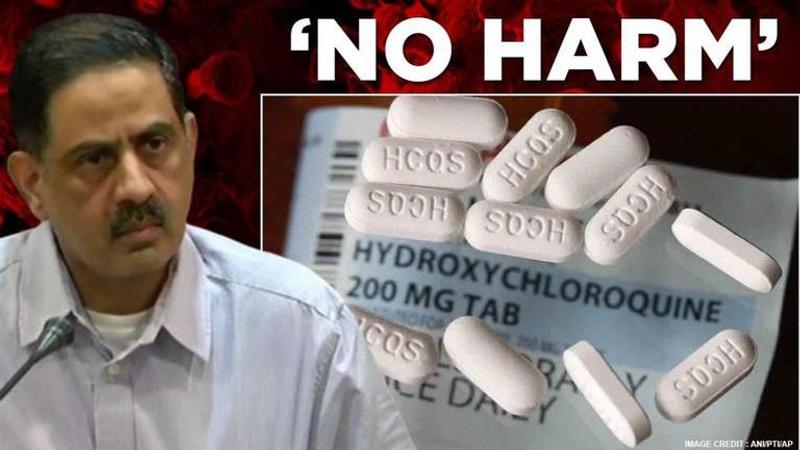Published 18:28 IST, May 26th 2020
ICMR clarifies 'no major side-effects' of Hydroxychloroquine, advises to 'continue' usage
ICMR chief Balram Bhargava stated that Hydroxychloroquine should be continued because studies have shown that there is 'no harm' while there 'maybe benefit.'

Reflecting upon the temporary pause on Hydroxychloroquine (HCQ) trials imposed by the World Health Organisation (WHO) Executive Board, Indian Medical Research council (ICMR) chief Balram Bhargava explained the reason behind the continual of the drug in India. Bhargava reasoned that the drug should be continued because studies have shown that there is 'no harm' while there 'maybe benefit.' He also added that the ICMR had issued revised guidelines to monitor and effect proper usage of HCQ.
Addressing the media on Tuesday, the ICMR chief said, "This COVID is an evolving field. We do not know which drug is working and which drug is not. A lot of drugs are being repurposed whether it be prevention or for the treatment. We all know that Chloroquine is a very old anti-malarial drug and Hydroxychloroquine is even safer."
"The biological plausibility was supporting that it is a possible anti-viral drug. Once we got the biological plausibility and we did an in-vitro study and found that it has anti-viral properties. It should be continued because there is no harm, the benefit may be there," Bhargava added.
The studies conducted also revealed that no the drug causes no major side-effects, except nausea, vomiting and palpitation
The ICMR chief also informed about the proper dosage of the drug and stated that the apex medical council has advised the drug to all the frontline workers. Bhargava informed that the drug should be taken with food and one tablet every week for eight weeks after an initial dose of two tablets. During the treatment, ECG should also be conducted.
WHO pauses HCQ trial
In a major decision, the World Health Organisation (WHO)'s Executive Group, on Monday, decided to temporarily pause the Hydroxychlorine (HCQ) trial while the data collected so far is reviewed, announced WHO chief Dr. Tedros in a press briefing. He added that the Executive Group's solidarity trial comprising of 10 countries will adequately evaluate the potential benefits and harms from this drug. Clarifying that the other arms of the trial were continuing, he added that the drugs hydroxychloroquine and chloroquine were generally safe for treating patients of autoimmune diseases or malaria.
Updated 18:28 IST, May 26th 2020




